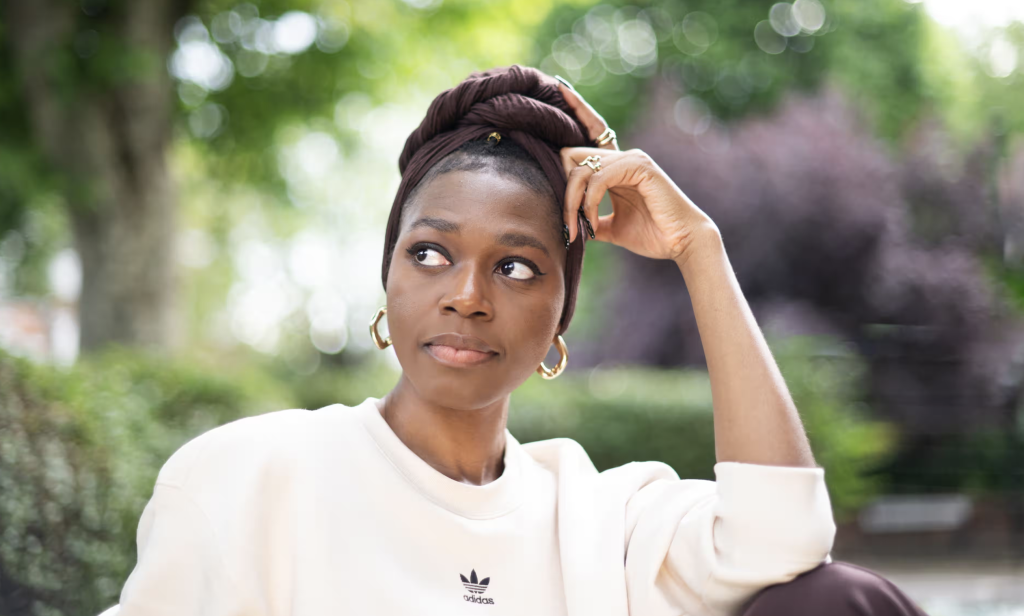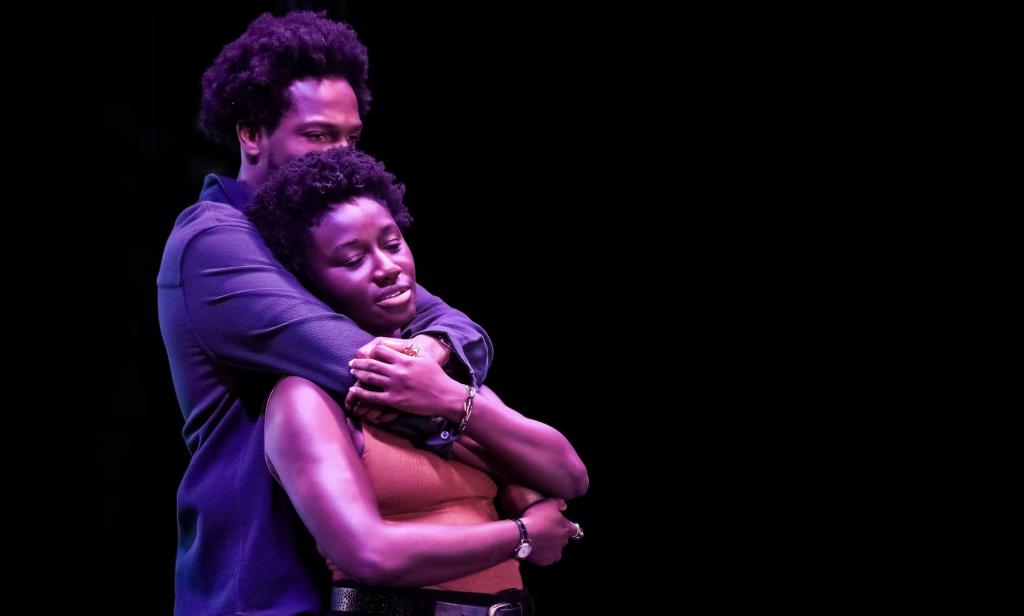As Benedict Lombe’s play Shifters transfers to West End, she is only third black British woman to have play staged there

- Benedict Lombe: ‘I’m hoping this moment is an opportunity to change the idea of who gets to tell these stories on these stages.’ Photograph: Diana Patient
Theatre audiences are “thirsty” for romance stories told from a black perspective, according to a playwright who is only the third black British woman to have a production put on in the West End, the heartland of UK commercial theatre.
Benedict Lombe’s play Shifters is transferring to the West End this summer. She said she believes the UK is entering a boom in black romance literature and plays led by authors such as Frances Mensah Williams, Dorothy Koomson and Bolu Babalola, who have had success writing romance stories that centre on black couples.
Asked if Shifters quenched a thirst for black British romance stories, Lombe said: “That’s exactly what it did. The resounding feeling was that people came out saying: ‘We needed this.’ It was like a release, people were sighing and saying: ‘We’ve been waiting for this.’”
Shifters sold out at the Bush theatre earlier this year and is transferring to the Duke of York theatre for a nine-week run, starting on 12 August.
Written throughout 2023, Shifters was Lombe’s second play at the Bush after her debut, Lava, which won the Susan Smith Blackburn prize in 2022.
Shifters follows the story of a British-Nigerian called Dre, played by Tosin Cole, and Des, played by Heather Agyepong, who are reacquainted after breaking up eight years previously. The Guardian said it had “real heart, soul and the everyday tragedy of long-lost first loves”.
In 2018, Natasha Gordon’s Nine Night became the first play by a black British woman in the West End, followed by Yasmin Joseph’s carnival-inspired J’Ouvert, which had a two-week run in 2021 at the Harold Pinter theatre.
Lombe said: “I’m hoping this moment in the West End is an opportunity to shift the canon and change the idea of who gets to tell these stories on these stages.”
The fact only three black British women have had plays staged in the West End’s history does not sit well with Lombe, who initially didn’t believe that statistic could be correct.
She said: “This moment needs to be a reckoning for producers in the West End, for them to realise there are so many stories not being told in those spaces. It’s our job to reflect the complexity of the UK, or at least London.”
She isn’t nervous about the transfer, even though it is into the competitive environment of the West End, where audiences can be less diverse than at the Bush. “We also had older, non-black audiences who would come in and leave in tears. It’s about that connection which transcends everything.”
Black actors and playwrights who have appeared in the West End this year have experienced racism and hostility. After Francesca Amewudah-Rivers was announced as the lead in Jamie Lloyd’s adaptation of Romeo & Juliet alongside Tom Holland, she received “deplorable” racist abuse online.

- Tosin Cole as Dre and Heather Agyepong as Des in Shifters. Photograph: Craig Fuller
Speaking to Vogue, Amewudah-Rivers said she was “still processing the knock-on effects” of the vitriol. “But you know, that kind of noise is designed to make people like us hide, and I won’t.”
Before that Jeremy O Harris, whose production Slave Play will be on at the same time as Shifters, was heavily criticised for hosting Black Out performances specifically targeted at black audiences. (In 2021, research showed 93% of national portfolio theatre audiences are white.)
“People haven’t seen enough of us,” Lombe said about the hostility. “They haven’t seen enough dark-skinned black women on the West End. They haven’t seen enough stories directed and written by black British women. I see it as an invitation though: ‘What are we going to do about it?’”
She said her relationship with the Bush’s artistic director, Lynette Linton, and the associate artistic director, Daniel Bailey, has been crucial to Shifters’ success. “They look at the theatre landscape and try to give people what they’re not getting,” said Lombe.
That attempt to create different types of stories is crucial, according to Lombe, who said talent would leave the industry if more opportunities were not created. “Theatre and the arts are in a precarious state at the moment. Writers need hope and need to feel they are valued and they matter so they don’t just go to TV or film. They need to see that these platforms are open to them, and I hope that’s what Shifters does.
“It’s about the industry looking at itself and asking: ‘Who are we for?’ This play says these stories are for everybody.”
Shifters is at the Duke of York’s Theatre until 12 October
